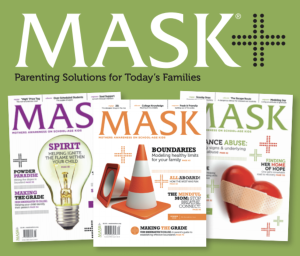
Be Silly
March 11, 2021
Sweet Nothing
March 13, 2021Teens in this age range are going to be exposed to substances.
It is critical to have or continue the conversations substances – it is very important for parents to become knowledgeable about what drugs exist in community, school, and neighborhoods. Once you have the facts, ask them open ended questions about their knowledge and experiences related to drugs and alcohol. Once you have a good understanding of what their knowledge and experiences are, then you can ask them what questions they have and what they need to know to avoid experimenting and using drugs and alcohol. The most important thing is to stay non-judgmental. It is a scary experience once your teens start telling you about what they have seen and what they know, but stay calm, listen, and don’t get mad at them. This will shut down the conversation and will likely create a barrier to being able to successfully talk to them about substance use. You are going to have to educate them on the negative consequences of substance use as well, but save that for the end of the conversation, starting out with that information is likely to make your teen think you are lecturing.
When it comes to tolerating emotional distress and the reasons why kids start using, parents can be an incredible resource for their teens. Help them develop problem solving skills, emotional regulation skills, goal-setting, and keep them connected to their family and the community. Teaching them problem solving skills such as conflict resolution, assertively asking for their needs to be met, and social skills will help them get out of sticky situations. Emotional regulation will help them deal with the increased amounts of stress they are dealing with every day when it comes to making life decisions, choices related to their future, and academic stress. Reminding them that setting realistic goals is the key to success will help them feel a sense of accomplishment that precludes low self-esteem. Perfection is not an achievable goal, so remember to praise their efforts rather than the outcome. Finally, research clearly shows that teens who are connected to something – school, church, community centers, volunteering, sports, music, art, or anything else – will help keep them from developing an addiction to substances.
- Sudden changes in any aspect of their functioning could be an indicator that something is going on, especially if a pattern of negative changes develop – don’t jump to conclusions, but do investigate what is causing the changes. If they don’t want to talk to you, find someone they can talk to
- Isolation
- Intense irritability or aggression
- Lying, stealing, or evasive behaviors
- Loss of interest in previous activities such as school, sports, or recreational/leisure activities
- Attendance, performance or school discipline issues
- Negative changes in personal hygiene or appearance
- Looking fatigue
- Depressed behaviors
- Change in eating habits
- Missing alcohol, money or valuables from the home
What you can do:
Stay in their lives and keep an appropriate connection with their friends and the families of their friends
Get them excited about a hobby or interested in any activity
Help them set realistic goals
Teach them that perfection is not the goal
Help them learn to tolerate frustration and failure
Practice mindfulness and coping skills on a regular basis
Show them how to problem solve
Maintain a healthy relationship with your teen – respect their new independence, but stay involved
Encourage them to take care of their friends if they see a friend in need or under the influence
Make sure they have exit strategies in place
Ask them to call you if they ever need a ride
Don’t fall into the trap of thinking that drinking with them will help prevent problems developing later in life. Drinking with your minor child is illegal and will help them develop a drinking or substance use problem or addiction.
“Let’s talk about how to get out of sticky or risky situations without losing friends – what have you tried, what have you seen others try, and what don’t you want to do?”
“Drugs and alcohol lead to pretty dangerous and illegal situations. What are your opinions on drug use and how can I help you stay true to your plan?”
“If you choose to try something like alcohol or cigarettes, please come talk to me first. Let’s talk about why you feel the need to try something this dangerous – we can figure out other ways to meet those needs rather than trying something that could ruin your life.”
MASK the Parenting Magazine a quarterly publication providing solutions for Today’s Families.
The parenting manual offering solutions to the modern-day challenges families face. From Pre-K
through College stay up to date on the modern day issues families face.
Are you up to date on the issues your child is facing?
MASK Mothers Awareness on School-age Kids offers parenting solutions for today’s families. MASK tackles important topics – from drugs and alcohol to bullying and Internet safety -and gives students, parents and the community the knowledge and tools to manage these potential challenges.
Subscribe today! https://www.tools4teaching.com/product/mask-the-magazine/
Download and share the MASKmatters app now! Made for children, parents, teachers and in Spanish.
Have solutions at your fingertips
Available free on apple and google play links below
Apple https://apps.apple.com/us/app/maskmatters/id1482305692
Google Play
https://play.google.com/store/apps/details?id=com.maskmatters.maskmattersapp&hl=en_US&gl=US





